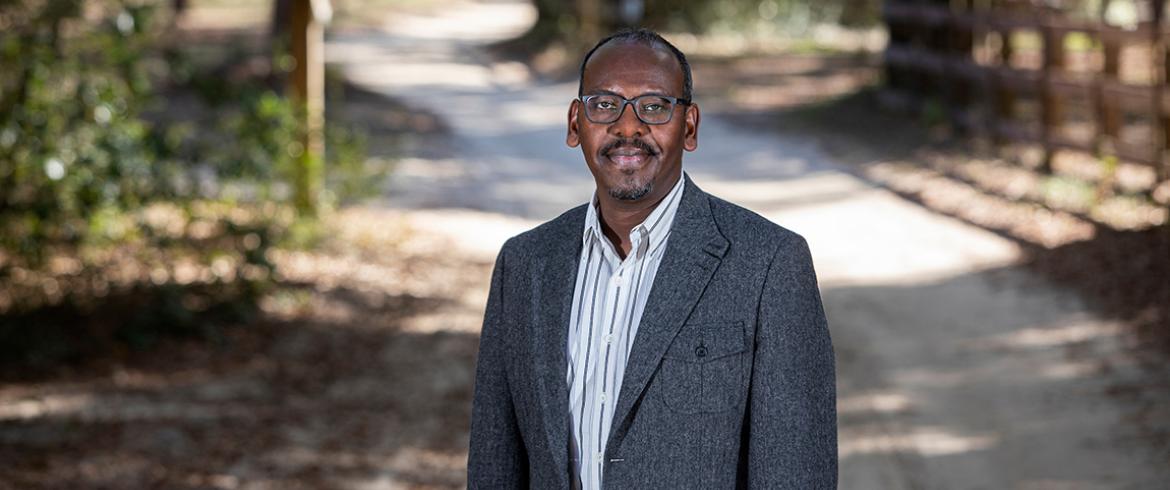
FAMU-FSU College of Engineering Professor Yassir AbdelRazig is working on a set of recommendations for FDOT related to evacuations for vulnerable populations during natural disasters. (M Wallheiser/FAMU-FSU Engineering)
When hurricanes strike Florida, the safest option is sometimes to get out of harm’s way. But leaving home to avoid an oncoming storm presents its own challenges, especially for the state’s most vulnerable residents.
A two-year, $215,000 study led by FAMU-FSU College of Engineering Professor Yassir AbdelRazig for the Florida Department of Transportation (FDOT) will help the state address the transportation needs of the vulnerable Floridians during a disaster.
“Transportation resilience plays a vital role to minimize the disruption caused by a natural disaster,” AbdelRazig said. “State level policies tend to focus on mitigating the impact of the natural disaster on infrastructure, so what we want to do is address the people affected, especially the most vulnerable.”
For minority populations, seniors, people with mobility impairments, people who are visually impaired or people who are mentally ill, there are many reasons they can’t or won’t evacuate. AbdelRazig is leading a team of researchers from the Florida State University Department of Geography, the Department of Urban Planning, and the Resilient Infrastructure and Disaster Response Center (RIDER) to study transportation through the perspective of those vulnerable population groups. The RIDER research facility works with community leaders, residents, government and industry to provide strategies that are supportive on resiliency and disaster-related issues.
The multi-disciplinary team is conducting surveys, statistical analysis, GIS mapping, and an economic impact investigation to provide a methodology to assess the issues related to overlooked populations.
“We hope to provide broad policy recommendations with actionable planning strategies for FDOT, especially pertaining to vulnerable populations,” AbdelRazig said.
The team conducted a comprehensive review of academic literature and planning documents, developed two survey instruments, one for planning professionals and the other for the targeted vulnerable populations, and is developing maps to identify the locations of vulnerable area in the state as related to transportation systems. They presented policy and planning recommendations based on their findings.
“More studies are needed to understand the relationship between social vulnerabilities and the geophysical factors that increase during natural disasters,” AbdelRazig said.
RELATED ARTICLES
Tips for evacuating vulnerable populations in Florida
Civil and environmental engineering professor is favorite media source for storm evacuation
Engineering researchers receive $500,000 NSF grant to study hurricane hazards and evacuation
